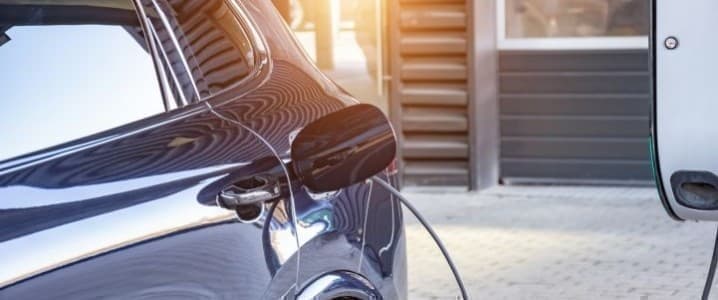
Tesla also decided to buck the trend of traditional automakers by selling its vehicles directly to consumers, rather than through franchised dealerships. Tesla’s founder Elon Musk has gained a wide following for his innovative designs and decisive leadership, much in the same way as several major tech companies. His foray into space travel has made him more popular than ever, with people watching to see what he’ll create next. As the first automaker to notably transition into the energy business, Tesla has laid the groundwork for other car manufacturers to build upon. But, while it was the first to launch a comprehensive range of EV and energy products, it will not be the last, as other companies are hot on its tail. General Motors (GM) announced this month that it has plans to launch its energy business through its GM Energy unit, in competition with Tesla.
Travis Hester, GM head of EV growth operations, stated of the move, “We’re getting into the entire ecosystem of energy management.” He explained, “Our competition in this space on the [automaker] side is really only Tesla, which is a strong energy management company… There are a lot of analogies you can draw with Tesla.” Tesla’s energy business lost $129 million on revenues of $2.8 billion in 2021. Meanwhile, GM is hoping its business development will help it double its annual revenue to $280 billion by 2030.
GM believes the market potential for energy storage and management stands at between $120 billion and $150 billion. The automaker will launch its Ultium Charge 360 public charging service alongside Ultium Home and Ultium Commercial. Its Ultimate Home service will offer stationary storage batteries, solar panels, and hydrogen fuel cells. The model is similar to Tesla’s Powerwall home energy service. GM expects to launch this product towards the end of 2023 alongside the introduction of its first Chevrolet Silverado EV truck. The new EV truck is expected to be capable of sending electricity back into the home supply in the case of a blackout, as has already been seen with Ford’s F-150 Lightning following its partnership with Sunrun.
The major automaker hopes to establish a system of micro-grids that connect to hydrogen fuel cells, to provide zero-carbon power. GM is also partnering with SunPower to offer consumers solar panels to boost renewable energy generation. The firm will also work closely with Pacific Gas and Electric (PG&E) and Con Edison, with plans to rapidly develop more partnerships to ensure it has all areas of energy expertise represented.
GM’s adoption of hydrogen technology sets it apart from Tesla, with Musk having openly stated his opposition to hydrogen and hydrogen fuel cells, calling the technology “extremely silly.” Major automakers entering the renewable energy market could become highly competitive with Tesla, particularly if they expand their energy businesses to include green hydrogen as well as solar power and other renewable energy sources.
While GM is the latest, and maybe one of the most notable, automakers to shift into the energy industry, other car manufacturers have already established energy businesses in recent years. German luxury automaker Mercedes-Benz created its U.S. energy division in November 2017, with BMW, Ford, and other auto companies also launching their own energy storage and vehicle-to-grid pilots that same year. Mercedes-Benz Energy Americas partnered with solar panel distributor Vivint Solar, with Vivint’s COO Brian Christensen explaining “As I look at how industries are evolving, I think there is a really good fit between the automotive industry and the home.”
After years of Tesla leading the U.S. EV-energy market, GM, and other automakers are now looking to compete with the EV giant by expanding their businesses through strategic partnerships with energy and tech companies. With the potential to profit not only from the auto business but also from the associated battery storage, charging, and renewable energy sectors, we can expect many more automakers to replicate this model over the next decade.